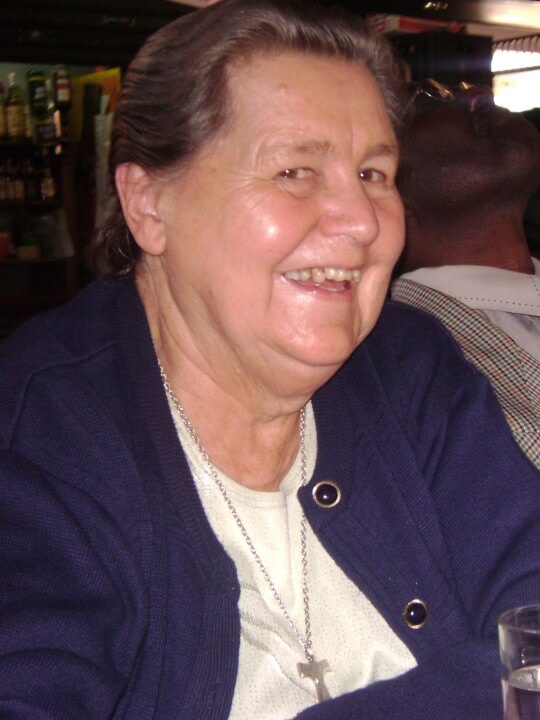Our History
Handicapped children
20 – 25 handicapped children were assisted with rental payment for three rooms in 2009 and a plot was acquired in 2010 for their possible future use. Their parents/guardians have a program to take care of the children.
All the properties have sale agreements signed by chiefs and parties involved.
Early Teenage Mothers and Nairobi Ladies (Women in Prostitution)
During 2007, HCH had these two programs that have since ceased. These were the Early Teenage Mothers (14 to 20 year olds) and Nairobi Ladies (women in prostitution also aged 14 to 22 years old) programs. Both these groups of women were trained in business management and vocational skills to help them become self reliant. They were also provided startup capital. The demand in special skill to secure transformation in the lives of these women was beyond the capacity of HCH.
Sustaining interest in the training for many of these women was a challenge for many reasons. Many of them had dropped out of primary school and were not able to cope at the vocational training level or professional courses of their choice. Some challenges such as thefts by the women in colleges they were sent to were reported. It might have helped to go through a rehabilitation program before integrating them into formal institutions. Others experienced conflict of interest where they had babies/children to care for while attending classes. They required support in babysitting.
St. Mary Magdalene Support Group Centre
Located in Korogocho, the centre was donated by an individual donor, Mr. and Mrs. Francis Waweru, in 2007. Women living with HIV meet here for training and psycho socio and economic support.
Huruma Youth Support Centre
In 2007/08, a three unit building was acquired and renovated. One of the units is a hall for the purpose of youth training, as well as theatre performance, a second room for adult education with an adjoining room which serves as an office, the third unit is multipurpose. The elderly meet in the centre and are served their meals in the tent.
New Life
In 2008, another plot of land was acquired and New Life School was built with the same capacity (65 children per classroom) and number of classrooms (3) as New Hope. The construction was fully sponsored by friends and family of Sr. Theresa Rafferty in Ireland.
Madoya School
During the same year, timber from St. Martin, a school that had been washed away by the 2006 El Nino rains, was used to construct a school in Madoya. St. Martin in Ngei village was being run by the Comboni Fathers/Brothers of St. Charles Lwanga and Sr. Lydia had assisted to fundraise for the school. The demand in Madoya to accommodate more children was high and a plot of land was purchased in 2009 and two more classrooms added as well as a kitchen. Madoya has a total of 5 timber classrooms each with an office attached for the teacher and with a capacity of 45 children in each classroom and in a separate but nearby location are the iron sheet classrooms with the kitchen. Funds for the construction were from Caritas Austria and Provincial Administration of Tyrole.

Founding
Hands of Care and Hope (HCH) was founded by the Late Sr. Lydia Pardeller, a Franciscan Missionary Sister for Africa (FMSA) in February 2006 with the assistance of a team of Kenyan Christians from the parish of Kariobangi. HCH has over the past years grown from rehabilitation of twenty children where they were fed and taught basics in literacy to development of four Non Formal Education schools with a total capacity of over 900 children as: New hope 184, New life 182, St. John Bosco 199 and Madoya 344 children. In this event HCH has acquired properties and put in place classroom in these schools. Besides the schools HCH has developed two centres namely Huruma Youth Support Centre that is being utilized by the youth for theatre performance, computer training and adult education and tent areas used by elderly women. The other centre is St. Magdaline Support Group Centre which is currently being used by women living with HIV for business skills training as well as business counselling and support and psycho socio support. The implication of this infrastructure development for HCH remains land tenure of which HCH has exercised sound provisions for property acquisition.
HCH started with a playgroup where about twenty children would be gathered in a small dark room in Korogocho. This moved later to a mud walled room where children were taken on a one year rehabilitation where they were fed and taught basic skills in literacy. The children were assessed for fitness or readiness to join neighbourhood public school, then referred and supported materially there. Most of them were mainstreamed in this manner. It was noted that after joining public schools, the children’s performance went down. HCH decided to set up its own Non Formal Education (NFE) schools in consultation with parents/guardians during a conference. The implication was that HCH would no longer support children to public schools with uniforms, desks and learning materials. Parents/guardians were required to send children to HCH NFE schools or take over this expense. HCH received funds from the Austrian Embassy to buy books.

